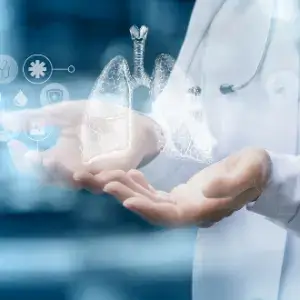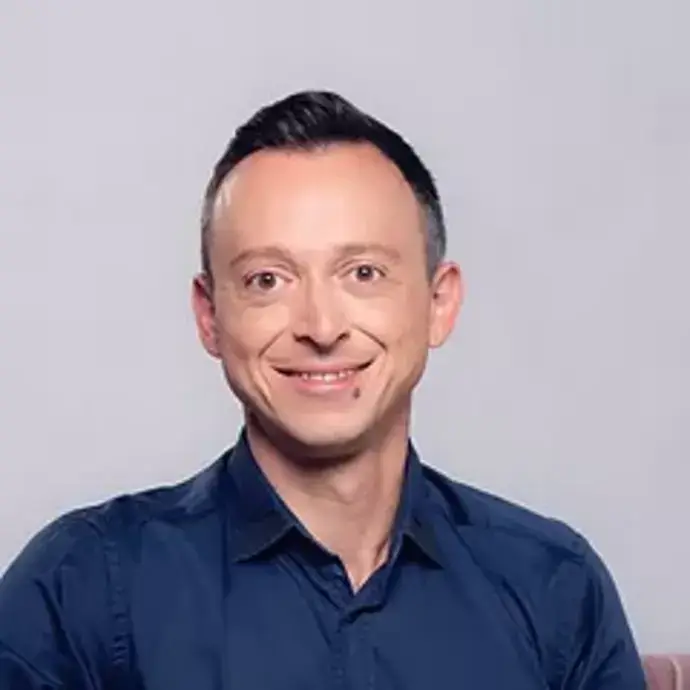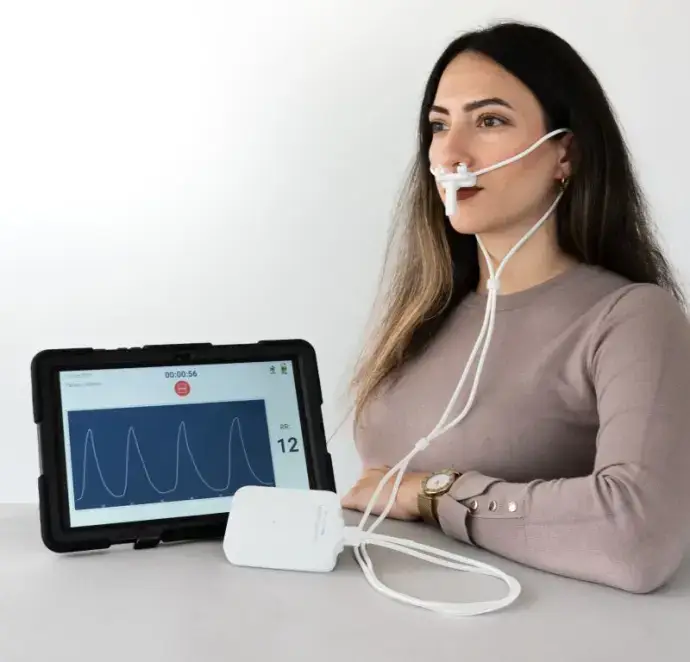
Technion-patented technology enables monitoring and early identification of changes in the condition of respiratory patients at home or in hospital.
The Jerusalem Post has partnered with ExitValley, a digital platform that enables anyone to invest in Israel’s start-up ecosystem and share in its success. In this article, we are pleased to introduce NanoVation-GS, an Israeli company that has developed a first-of-its-kind nanosensor-based technology for monitoring and managing chronic respiratory conditions at home or hospitals while reducing hospitalizations.
The patented technology was discovered at the Technion and is undergoing clinical trials in Israel and the EU. “The technology enables surveillance and early identification of changes in the patient’s condition. In addition to reducing hospitalizations, it is also expected to reduce their duration”, says the company’s CEO and co-founder, Dr. Gregory Shuster, Ph.D.
NanoVation-GS has developed a unique technology for monitoring patients with chronic lung diseases, with an emphasis on obstructive diseases such as COPD – Chronic Obstructive Pulmonary Disease, which enables early detection of worsening of symptoms and helps reduce prolonged and frequent hospitalizations by allowing the patient to receive appropriate early treatment. “The device is designed to measure important respiratory parameters without any discomfort or effort needed by the patient,” says Dr. Shuster.

The development is based on advanced nanosensor technology, which for the first time allows accurate monitoring of changes in respiratory function without any discomfort or effort from the patient, and is particularly sensitive to fluctuations and changes in several critical respiratory parameters. “One of the things we identified was the gap in technologies related to respiratory monitoring. When you look at monitoring in cardiology, for example, there are much broader tools than in respiratory monitoring,” Dr. Shuster explains.
The solution provides the ability to manage chronic respiratory diseases via the cloud, allowing doctors to review data from any location, during hospitalization, and during the follow-up period at home, which also enables the creation of “big data”-bases of all relevant information. “The system is simple to use at home without any need for professional assistance or in a clinical environment. It operates in a non-invasive method, measures normal and effortless breathing, and uses exclusive biomarkers which were identified by the company’s technology,” Dr. Shuster adds.
“The system is simple to use at home without any need for professional assistance or in a clinical environment”.
Dr. Gregory Shuster
NanoVation-GS was founded at the Technion by a leading experienced team, including Dr. Shuster- founder and CEO and senior researcher in nanomaterials and materials engineering, and Prof. Hossam Haick, founder and CSO, a leading researcher and expert in nanotechnology. The company has an exclusive license for its first patent from the Technion and two additional patents owned by the company, which are in the registration phase.
NanoVation-GS has been granted a prestigious development grant by the European Innovation Council (EIC), which only supports start-ups identified as companies with a significant impact and groundbreaking technology. In addition, the company has previously received grants from the Israel Innovation Authority. “Breathing monitoring technologies today can be divided into two groups,” says Dr. Shuster. “One is the technologies that measure normal breathing, which are not invasive or annoying to the patient, but the data collected is limited to the parameter of breathing rate only.

“The second group provides a series of respiratory parameters, but it requires the patient to perform certain breathing maneuvers. This is a complicated test for the patient to perform at home. It is bothersome, unpleasant for the patient, and the doctor who receives the data cannot know whether the test was performed properly, because he did not see the patient do it.
“What we do is combine the benefits of these two worlds,” says Dr. Shuster. “On the one hand, our measurement takes a few minutes, during which the patient puts on the sensor and does nothing extra. On the other hand, the data we extract provides a series of respiratory parameters, which are very relevant to changes in the disease condition. All this in one simple test, which can also be done routinely at home. The patient cannot get an incorrect measurement, because all he has to do is breathe naturally.”
The company’s SenseGuard product has been tested so far in successful clinical trials at leading partners in Israel and around the world, including Halle-Saale University Hospital in Germany, Nicosia Lung Center in Cyprus, and in Israel at Ichilov Medical Center, Poriah Hospital, Nazareth Hospital, Rambam and Barzilai Hospitals and the Galilee Medical Center.
NanoVation-GS has completed all procedures needed for obtaining the necessary regulatory approvals for medical devices, including CE certification and international ISO standards. The company will work to update its existing CE certification to the new standard (MDR), while also planning to obtain FDA approval at a later date. NanoVation-GS is ready to start marketing activities in Europe towards entry into the COPD monitoring market, which is its first phase destination market, and later will turn to other territories and examine further commercial and clinical applications.
“Right now, we are focusing on the medical field, looking at chronic respiratory patients, but plans for the future are varied,” Dr. Shuster concludes. “The use of our technology can also be extended to other respiratory and non-respiratory diseases, sleep monitoring and even entering the field of wellness, by measuring and helping to manage the level of stress, assisting with breathing exercises in yoga and more.”
